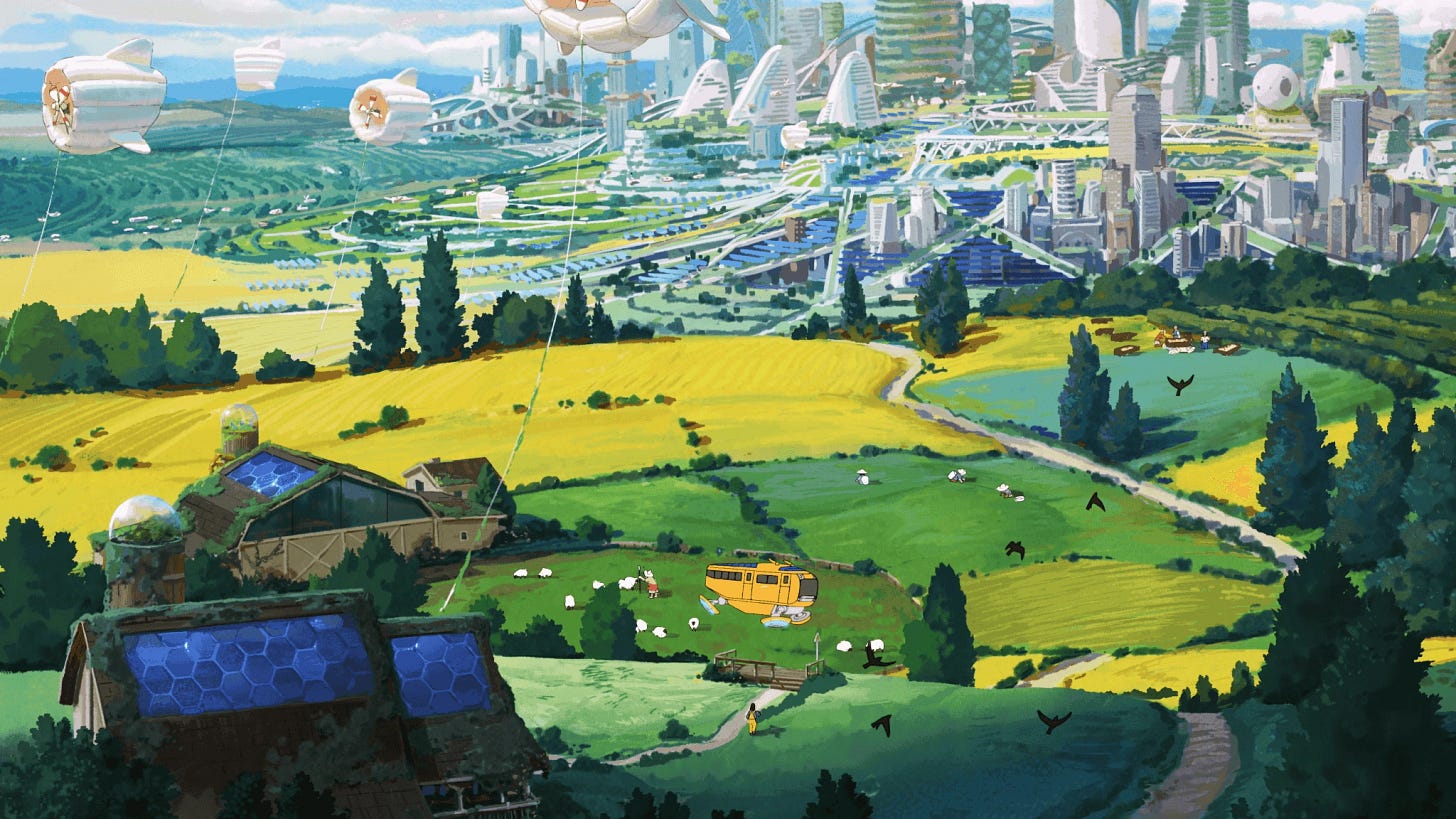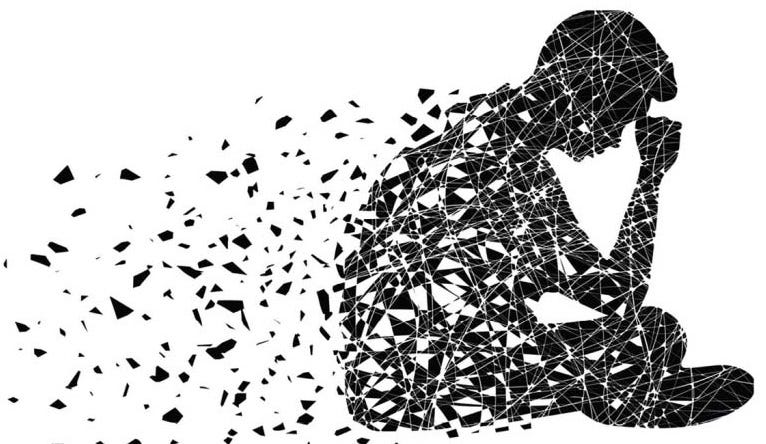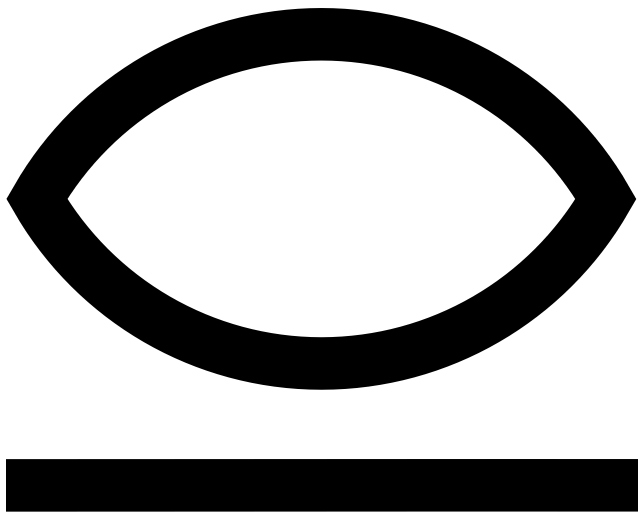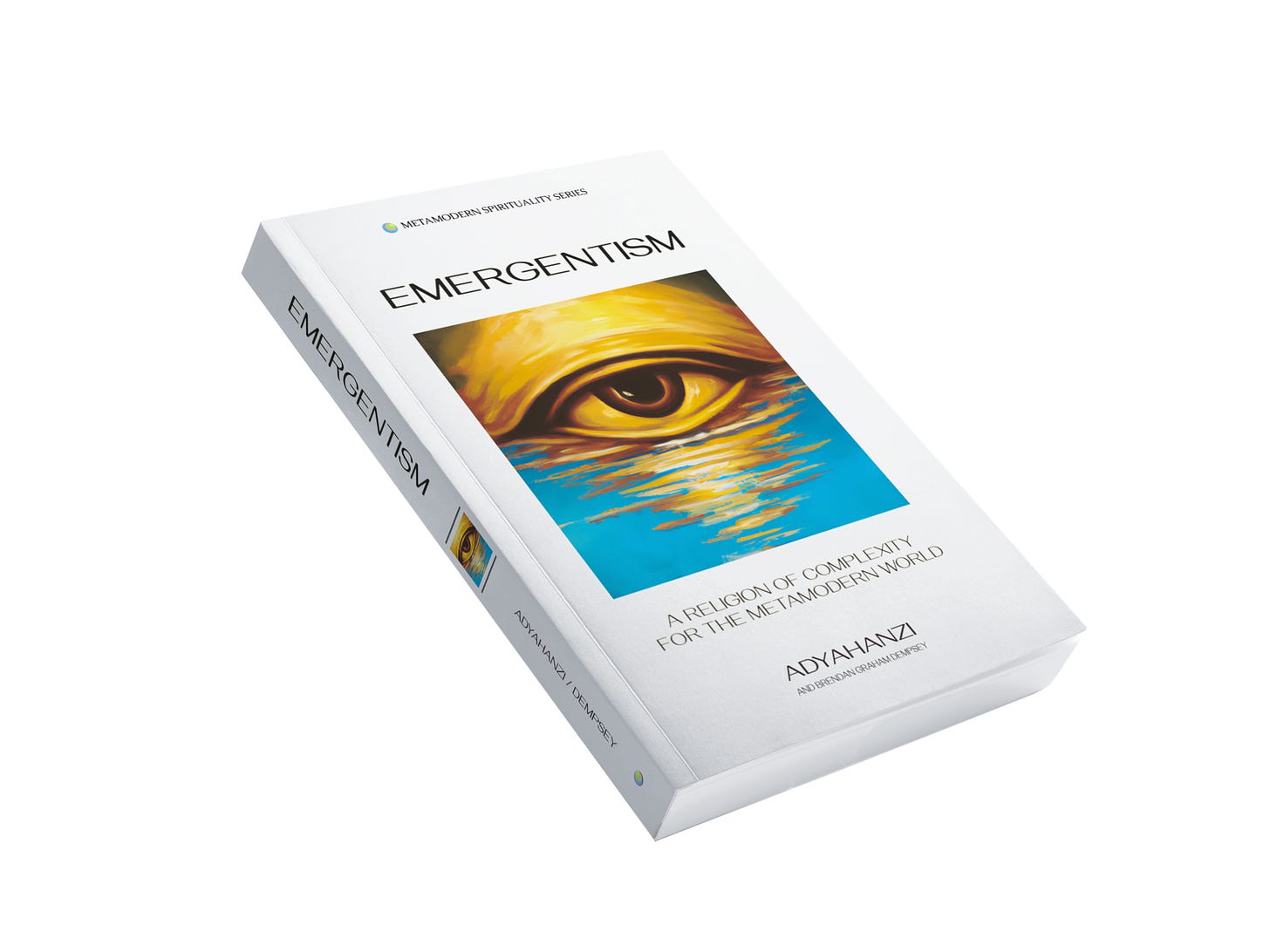Meaning Made Whole
The advent of modernity brought an incredible advance in human knowledge as it shifted culture from a relatively simple religious traditionalism rooted in 2D consciousness to a more complex naturalistic worldview rooted in 3D consciousness. Early science led the way, opening up vast horizons of understanding through a novel methodological approach that could cut through the confusion of a noisy world and zero in on the fundamental laws and forces of the Universe.
Such reductionism was revolutionary for analyzing the world according to its discrete parts. It set off a cascade of dissection and differentiation, revealing the former subjective (con)fusion endemic to religious holism. So the individual self emerged more fully from its embedding in the world; the subjective/objective split was now complete.
Though an important and necessary development, this analytical process was only the first step in a two-part movement. It represented the differentiation phase, wherein a simple whole is broken into parts in order for them to be considered in isolation. Such a phase is a necessary precursor, however, to the integration phase that follows, in which these newly identified parts are then considered in their wider relational context, revealing the true complex whole.
The first centuries of modern science were all about differentiation. While revelatory, this reductionistic era naturally led to a worldview of fragmentation, dislocation, and alienation, as the world became atomized and all the most important wholes (e.g., the soul, the cosmos) were broken down to their lowest denominator and ultimately “dissolved into particles.”
The view of the world in the midst of the differentiation phase is thus one in which there is no grand whole according to which our lives might have meaning. More than that, our very experience of our lives as conscious, free agents is seen as only an epiphenomenal illusion, since deterministic particles are alone what’s deemed “really real.”
This way of seeing remains pervasive. Indeed, it provides the presuppositions that lie behind the nihilistic perspective of so many people today. The contemporary meaning crisis was born in the cultural transition from 2D to 3D consciousness, as the incomplete movement of differentiation was misinterpreted as the absolute nature of reality. Unfortunately, the premature conclusions of early modern science have become “frozen” within the Modern cultural code, an out-of-date justification system people keep downloading to make sense of the world.
Meanwhile, the integration phase has begun, and has in fact been underway for some time. Through the systematic and meta-systematic insights of 4D and 5D consciousness, respectively, the parts identified by 3D science are at last being recontextualized into their relational, networked wholes. These recontextualizations constitute the revelations of complexity science, which has been identifying the emergent nature and workings of integrated wholes. Here, emergentism as a conceptual paradigm (small e), has led the way.
With this neo-holistic paradigm, the reductionist narrative can be recognized for the true yet only partial and incomplete story that it is. In its place has arrived a new, more complete cosmic story: the story of evolutionary complexification.
As the various integrative sciences of complexity have themselves been integrated into unifying theories of knowledge and reality, a radically different understanding of the world and our place in it has come into view. According to this story, the Universe has been undergoing a relentless learning process since it first emerged almost 14 billion years ago. From an initial state of expanding chaotic radiation in equilibrium, the fundamental laws and forces unfolded ineluctably from the fine-tuned parameters of existence and got to work carving out structure from featureless cosmic fog.
Matter emerged out of the haze, and gravity condensed it into clumps. Nature retained these clumps, which became stars and black holes swirling galaxies around them. Planets emerged, turning around the stars turning around the galaxies. Dissipative adaption built on dissipative adaptation, as energy organized what it flowed through. Life clicked on, and learned its environment through ever-updating genetic code. Elaborate nervous systems networked sensory input together into an integrated whole, and Mind emerged to learn its environment through ever-updating experience. Mind complexified, gaining the capacity for language and concept, wherein self-consciousness clicked on, and Culture began its long journey of psycho-social memetic complexification.
In the course of this cultural evolution through the shapes of consciousness and their associated metamemes, Culture refined its own knowledge-creation process, eventually hitting on science, a human epistemological version of the Great Algorithm of variation and selective retention. With this, it began the above-mentioned differentiation and integration process, distinguishing Nature’s many parts before realizing their emergent holistic levels of holarchic order.
Culturally, this is where we find ourselves today: between the Great Tearing Apart and the Great Re-Integration. Many people remain stuck in the fragmentation of 3D consciousness and its Modern reductionistic narrative, gripped by nihilism. Others recoil from this, and seek out the comforts of old 2D religion, with the old mythic God above and Judgment Day ahead. Those who have developed a 4D perspective can see the limitations of traditional religion as well as the modern world we’ve made, but often fall victim to the radical relativism of endless contextualization, or themselves recoil to the naive belief that 0D animism is what holds the key for all our ills.
What is really needed, though, is to keep going forward, to keep evolving—to complete the integration phase, wherein we regain a holistic framework required for a meaningful existence and thus a sustainable world. The new cosmic story revealed by the unifying, integrative visions from complexity science will be key to this fruition.
In this book, I have attempted to translate that vision into the religious register, to render it in the mythopoeic forms humanity has used for its articulation of ultimate concern since the very dawn of self-consciousness. In this mode, we find the information that we need presented as the wisdom we should perceive it to be; we find the story of complexification told as the myth it should be read as; we find the implications of its framework taught as the ethical and religious practices they should be lived by. We approach religion from a 5D vantage.
It is a bold thing to invent a religion in this way, true. But bold approaches are what’s required for the wicked systemic problems facing us. On the other hand, as we have also noted: None of this is really all that new! From the mystical teachings of ancient sages, to the archetypal imagery that wells up from our subconscious, to some of the most robust philosophical paradigms of modern philosophy, like German Idealism, Process Theology, and Integral Theory, there is a lineage, a golden thread connecting the leading edge of complexity science with the perennial wisdom as old as the hills.
Emergentism is simply an attempt to translate all of this into the integrative spiritual vision that fits the life conditions of our nascent 21st century world. It is an effort to render all of this in the familiar language of religion—a language whose warmth and inner transformative power science often fails to achieve, but which is required to speak to our spiritual core.
Indeed, it is my hope that it speaks to the rising generation of “Nones” and “spiritual but not religious” seekers today, who enter a world increasingly bereft of functional myths and symbols that can relate to their experience of meaning and the sacred. Today, we need not only a new religion, but a specific kind of religion. We need a religion that tells us the Earth is holy and not something to be trashed. We need a religion that affirms that life and consciousness are precious. We need a religion that places the profound advances in cosmology, physics, and biology into a poetic and psychologically fulfilling meta-narrative, so that God and Nature are no longer at strife.
More than that, we need a Religion 2.0 that has learned from the failures and limitations of Religion 1.0: namely, its dogmatic rigidity, censorship, oppressive power hierarchies, denigration of the body and the Other. We need a religion that’s open, up to date, and ethical. In short, we need a religion that works.
Clearly, we must get ourselves right with purpose if we’re to survive an Anthropocene era. To use the language of systems analysis, we must find the “leverage points” for systems-level change, the points where solutions can be applied with maximal effect. And in a complex sociocultural system, where else is such an Archimedean Point to be found but in people’s beliefs—in their psychic orientations to reality, their foundational philosophies and unspoken axioms about the world? An intervention at this fundamental level for individuals can have vast, cascading effects on the larger systems they inhabit. Could Emergentism provide such a lever?
The sort of “religion that’s not a religion” explored in this book is not just another closed-canon, close-minded set of beliefs either imposed, adopted, or rejected. Emergentism is open-source, co-created, and personally developed. Its cosmic story comes from scientists; its scriptures, from poets and artists. It is a religion of evolution and development by means of evolution and development. It is a religion of knowledge creation, refinement, and correction, and so itself shall be continually refined and corrected according to the same mechanisms the Universe itself has used to gain Self-knowledge since the dawn of time.
Today, when people feel increasingly beset by despair and meaninglessness, Emergentism offers the invitation to participate in the manifestation of ultimate knowledge, beauty, power, and goodness in the world. At a time when people feel adrift and lost, without purpose, Emergentism calls us to help God incarnate and thereby realize the very telos of the Universe. At a time when everything feels pointless and nothing seems to matter, we are summoned to an epic cultural project to build the Cathedral of a new worldview, a new religion, a new age and a new Divinity—by means of our own unique and special flavor of individuality.
You matter. You are a way for the cosmos to know itself. You are a railway for the cosmic Lightning. You are the very Self of the Universe coming to greater Self-consciousness: God awakening, God learning, God knowing, caring, and loving. You are the latent and creative light of emergence.
Emerge.
γνῶθι σεαυτόν तत् त्वम् אֶהְיֶה אֲשֶׁר אֶהְיֶה
Buy the full book here:











Meh.
I've read this whole series. I'd like to ask: what has Emergentism to offer against a world of death, decay, error, and the failure to live up to ones potential? How can the individual take solace in the meaningfulness of their own lives, not just if they are lives will lived, but also if that are lives *poorly* lived? How does Emergentism account for failure?